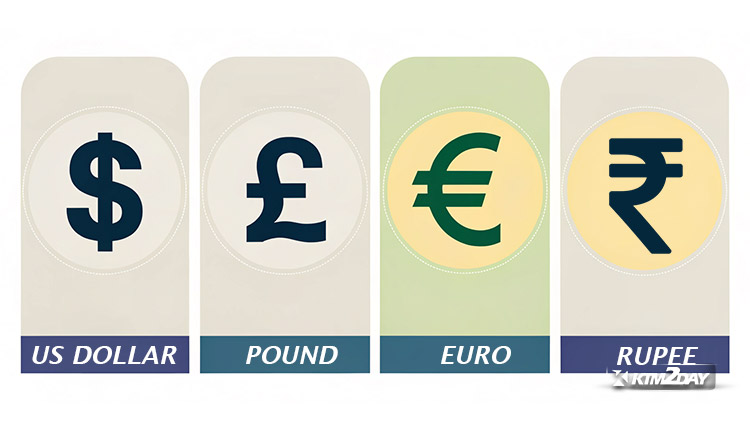Nepal Rastra Bank Sets Monday’s Foreign Exchange Rates; USD Remains Stable


KATHMANDU, NEPAL – June 16, 2025 – The Nepal Rastra Bank (NRB), the nation’s central bank, has published the official foreign exchange rates for Monday, June 16, 2025. The exchange rate for the U.S. Dollar (USD) remains consistent with Sunday’s figures, with the buying rate set at NPR 137.44 and the selling rate at NPR 138.04. This stability in the primary reserve currency offers a degree of predictability for importers, exporters, and the broader financial market.
The determination of these exchange rates by the central bank is a critical function, influencing various facets of Nepal’s open economy, from trade balances to the cost of remittances and imported goods.
Check : Daily Foreign Exchange Rates in Nepal
Key Currency Exchange Rates for June 16, 2025
The NRB’s published rates for other major global currencies are as follows:
- European Euro (EUR): The buying rate is NPR 158.78, and the selling rate is NPR 159.47.
- UK Pound Sterling (GBP): Priced at NPR 186.44 for buying and NPR 187.26 for selling.
- Swiss Franc (CHF): The buying rate stands at NPR 169.42, with a selling rate of NPR 170.16.
- Australian Dollar (AUD): Set at a buying rate of NPR 89.17 and a selling rate of NPR 89.56.
- Canadian Dollar (CAD): The buying rate is NPR 101.17, and the selling rate is NPR 101.62.
- Singapore Dollar (SGD): Announced with a buying rate of NPR 107.24 and a selling rate of NPR 107.70.
- Japanese Yen (JPY) (for 10 Yen): The buying rate is NPR 9.54, and the selling rate is NPR 9.58.
- Chinese Yuan (CNY): The buying rate is NPR 19.14, and the selling rate is NPR 19.22.
- Saudi Arabian Riyal (SAR): Set at a buying rate of NPR 36.62 and a selling rate of NPR 36.78.
- Qatari Riyal (QAR): The buying rate is NPR 37.71, and the selling rate is NPR 37.87.
Additional currency rates include:
- Thai Baht (THB): Buying at NPR 4.24 and selling at NPR 4.26.
- UAE Dirham (AED): Buying at NPR 37.42 and selling at NPR 37.58.
- Malaysian Ringgit (MYR): Buying at NPR 32.37 and selling at NPR 32.51.
- South Korean Won (KRW) (for 100 Won): Buying at NPR 10.06 and selling at NPR 10.10.
- Swedish Krona (SEK): Buying at NPR 14.50 and selling at NPR 14.57.
- Danish Krone (DKK): Buying at NPR 21.29 and selling at NPR 21.38.
- Hong Kong Dollar (HKD): Buying at NPR 17.51 and selling at NPR 17.59.
- Kuwaiti Dinar (KWD): Buying at NPR 449.15 and selling at NPR 451.11.
- Bahraini Dinar (BHD): Buying at NPR 364.47 and selling at NPR 366.06.
- Omani Rial (OMR): Buying at NPR 356.94 and selling at NPR 358.50.
Notably, the exchange rate for Indian Rupees (INR) 100 remains fixed at a buying rate of NPR 160.00 and a selling rate of NPR 160.15. This fixed peg between the Nepalese Rupee and the Indian Rupee is a cornerstone of Nepal’s exchange rate policy, providing stability for cross-border trade and remittances, particularly given the extensive economic ties between the two nations.
Understanding NRB’s Role and Market Dynamics
The Nepal Rastra Bank is solely responsible for determining these reference exchange rates daily. This role is crucial for maintaining currency stability, managing foreign exchange reserves, and guiding the country’s monetary policy. The rates are based on various factors, including international market movements, supply and demand for foreign currencies, and the central bank’s policy objectives.
It’s important to note that while NRB sets these official reference rates, the exchange rates offered by commercial banks in Nepal may slightly differ from these published figures due to their own operational costs, profit margins, and specific market conditions. However, the central bank’s rates serve as the fundamental benchmark for all foreign exchange transactions within the country. The NRB also states that these exchange rates can be adjusted at any time based on prevailing market conditions and policy requirements. The most updated exchange rates are always available on the central bank’s official website.
The foreign exchange market’s stability or volatility directly impacts various economic agents. For businesses, favorable exchange rates can make imports cheaper or exports more competitive. For individuals, particularly those receiving remittances from abroad, the exchange rate dictates the real value of their incoming funds. Continuous monitoring by the NRB is vital to ensure financial stability and support Nepal’s economic objectives amidst a dynamic global financial landscape.















